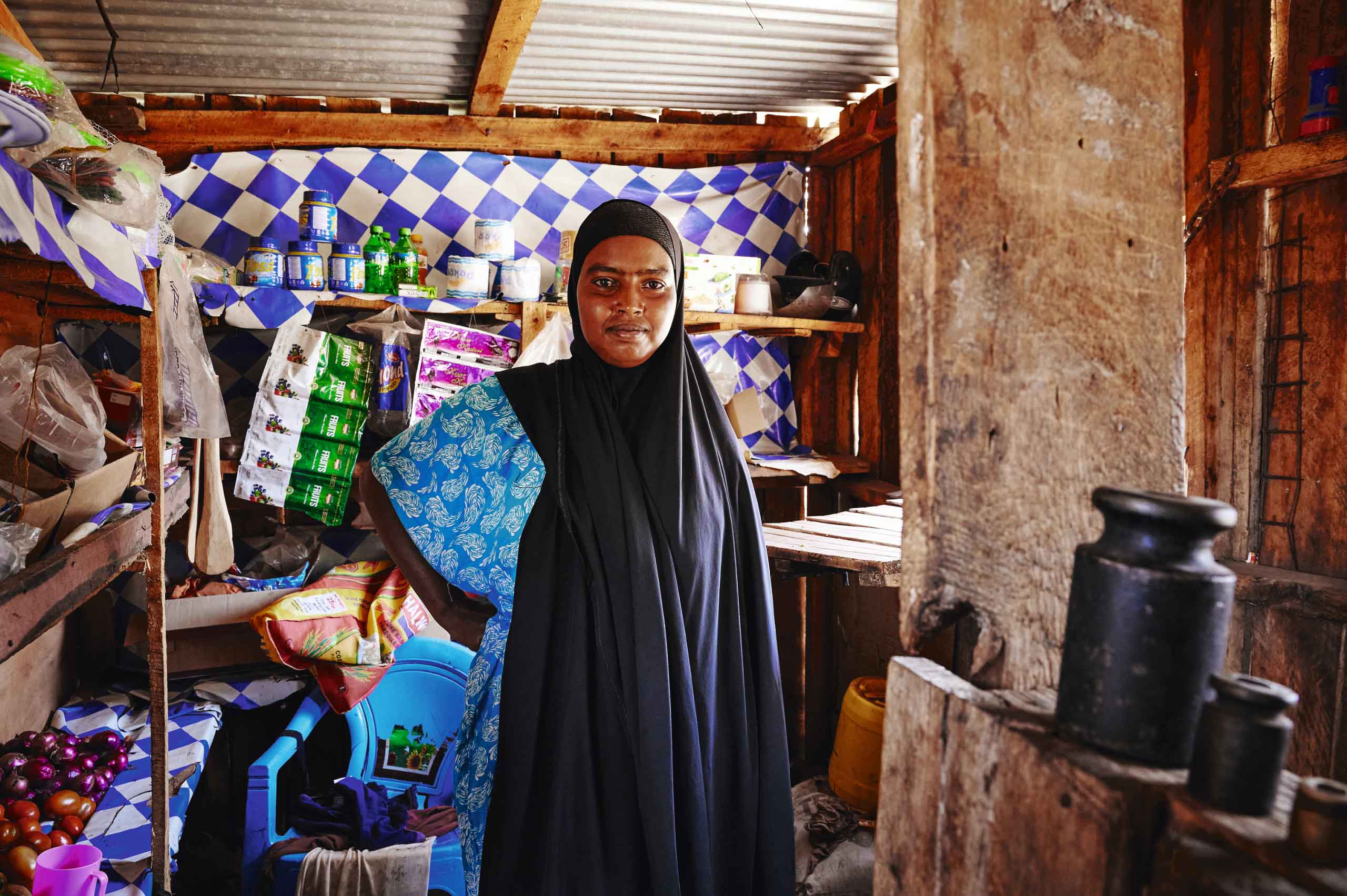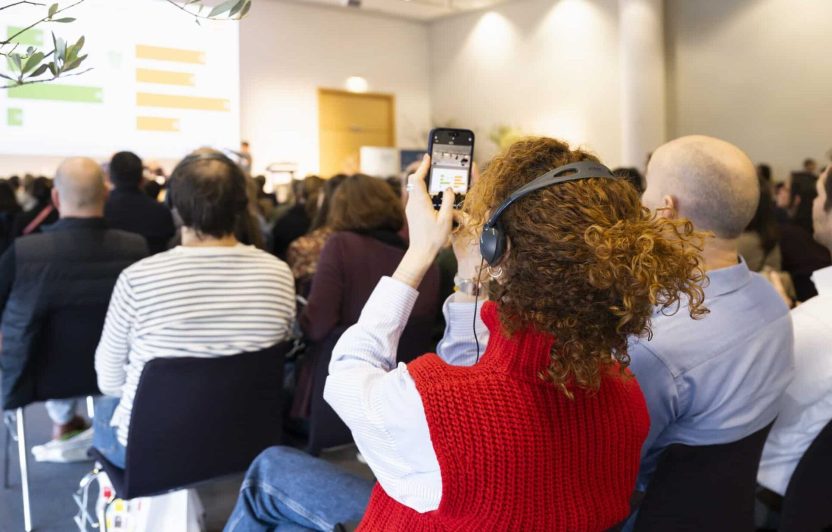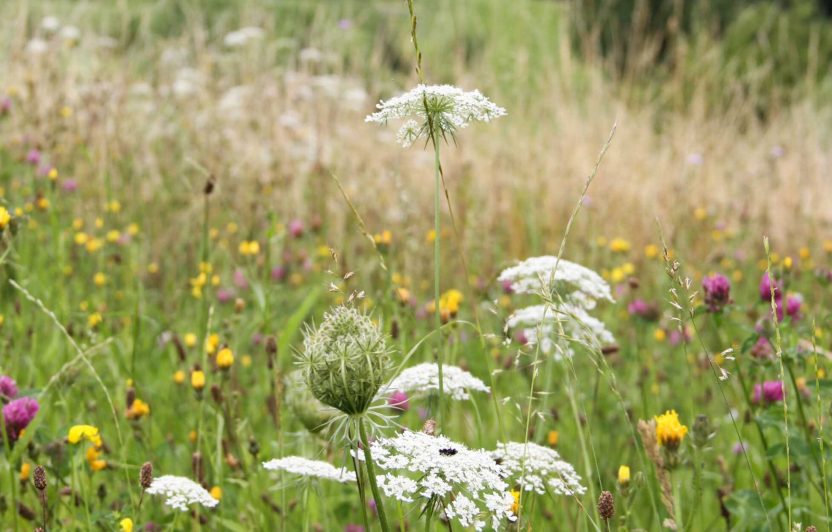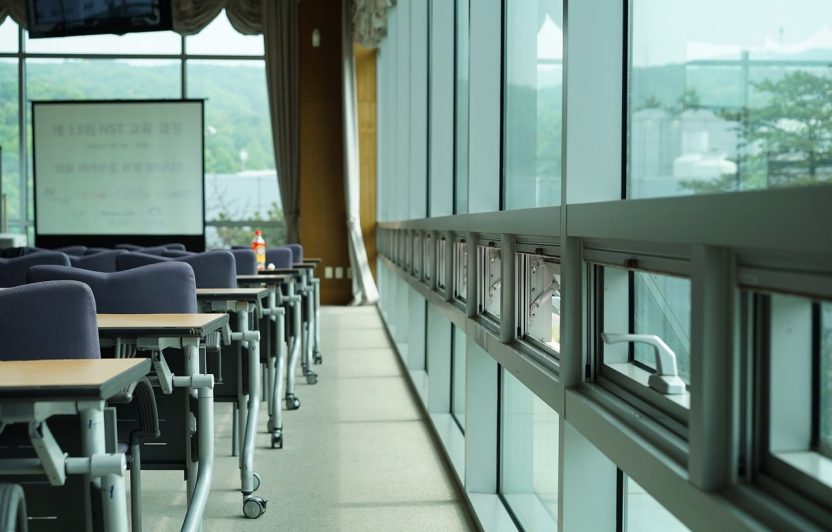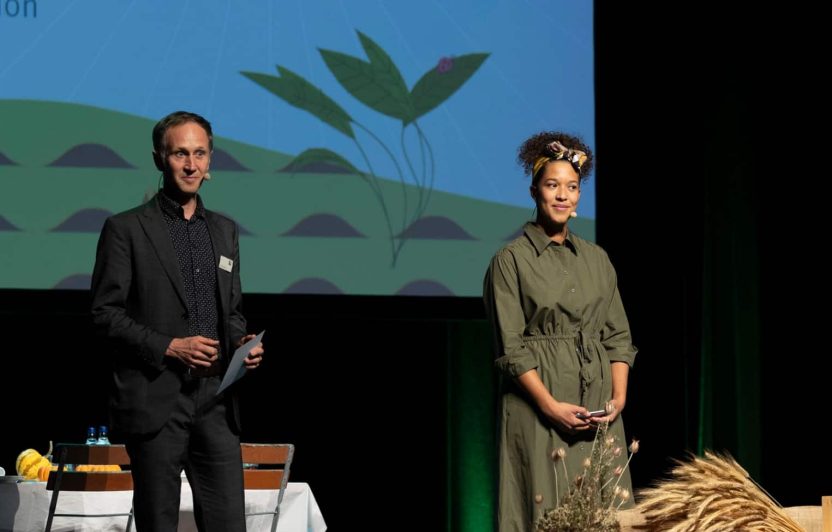See the animated photo story on Youtube:
The renowned photographer Christian Bobst and Biovision project reporter Peter Lüthi visited the “Galesa Self Help Group” in Kula Mawe and Isiolo in October 2021.
From the life of...
“I’m proud of myself.” When Nasibo Turo Kund’s husband abandoned her and their four children, she was left with nothing. Today, she can provide for her family and pay school fees without any outside help.
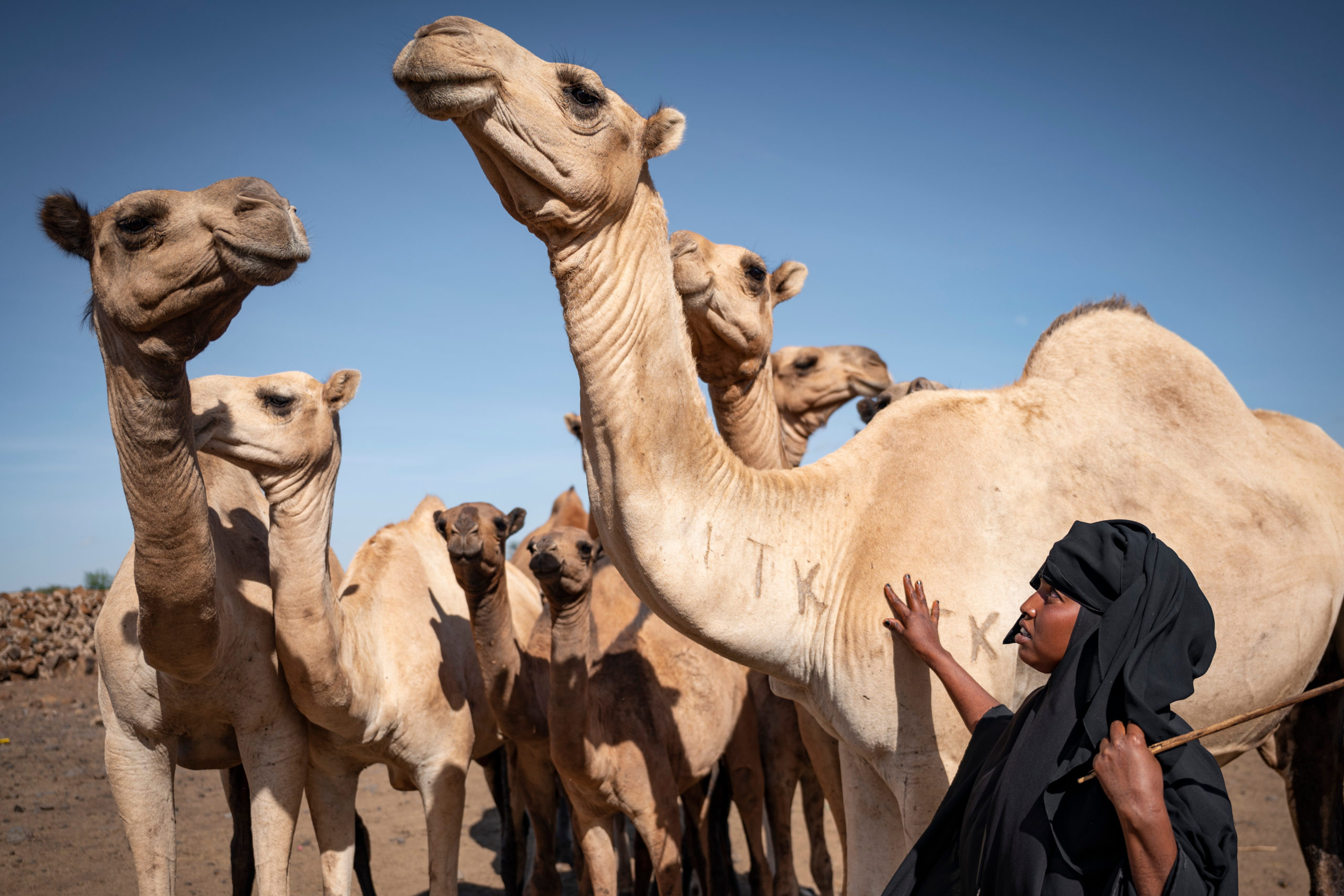
The little shed with the barred window opening on the outskirts of Isiolo is full of surprises. Nasibo’s Grocery Shop & Butchery sells everything from detergent, stationery, painkillers and plasters to children’s tableware, sweets, vegetables, camel milk and meat. Behind the counter is Nasibo Turo Kund, a 30-year-old Borana woman. “Business isn’t great at the moment,” she says. “The holidays are over and customers have to put money aside to pay school fees for their children.” But she’s not downcast about it. Quite the opposite, in fact: “I’m proud of myself, because I have a job in my own shop and can send all of my children to school.” She earns enough to do this, even when times are tough, as they currently are. This wasn’t a foregone conclusion for the single mother. Things could very well have turned out differently, as her life has been far from easy. Her mother died when she was nine, and she lost her father when she was 16. Her grandmother took her in, so she was able to attend primary school. There wasn’t enough money for her to continue to secondary school. She married young, but her husband moved out, leaving her with their four children. The poverty trap snapped shut.
A camel brings hope
But Nasibo Turo Kund was lucky. She was able to represent her 84-year-old grandmother at the Galesa Self Help Group, an association of women and men from families particularly at risk of poverty. The association was in contact with local representatives of Vétérinaires Sans Frontières Suisse and Biovision. In 2016, she became involved in the Camels for Drought Areas project and received five mother goats for breeding. Today, the Turo family’s herd numbers some 30 goats. Nasibo keeps the female kids for breeding and sells the bucks. She gradually saved the proceeds and invested in her own kiosk. The family was less fortunate with the camel that they were later given under the project. The mare gave birth to two calves, but both died. However, the mare does provide milk, which is in plenty of demand at the kiosk. The bestseller, however, is camel meat, which Nasibo Turo Kund buys from a butcher. She sells about 2 kilograms per day and makes a profit of just under 200 Kenya shillings (KES) – about CHF 1.65. Depending on the season and the amount of rainfall, she makes KES 500–1,000 from sales of camel milk, plus KES 800–1,000 from the other items in her shop. Altogether, she brings in KES 2,500–3,200 (CHF 12.40–16.50) per day, depending on the amount of milk she sells. The largest share of profits comes from camel milk.
Independent and self-reliant
“After deducting all the costs for shopping and living, there’s hardly anything left over, especially when the rains fail and the amount of milk decreases. Then money can still be very tight,” says the young woman. Nevertheless, she and her family are no longer dependent on government food aid, even during extreme dry spells. “Without this project I wouldn’t have had a chance,” she says, and emphasises: “Being self-reliant and independent is really important to me, too.”
